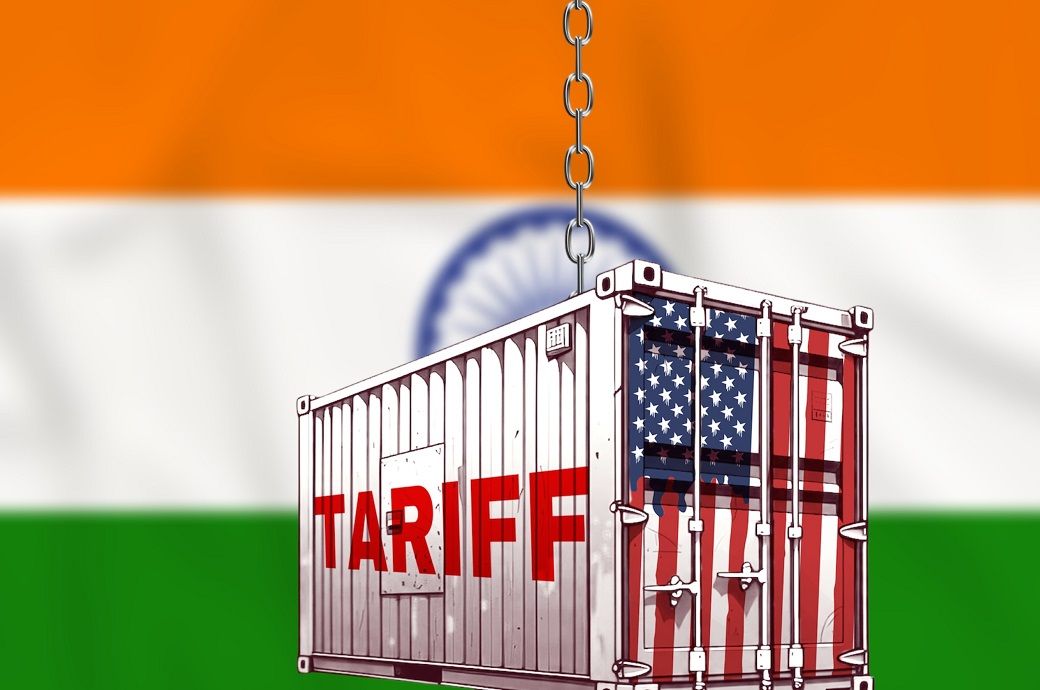
US President Donald Trump’s additional tariff of 25 per cent on Indian goods is set to take effect in a few days, even as Indian industries continue to grapple with the potential fallouts.
Sectors that are heavily reliant on exports to the US, chief among which is the textile and apparel sector, find themselves directly in the line of fire. The US remains one of the largest markets for Indian textiles, making the sector highly vulnerable to policy shifts like this one.
The US move to double tariffs on Indian goods to 50 per cent, as noted in a Morgan Stanley report, could cut up to 80 basis points from India’s GDP growth over the next 12 months—unless offset by government measures, policies, and reforms, media reports underlined.
The textile industry, being one of the country’s largest employment generators and exporters, is expected to suffer a substantial setback. The readymade garments sector—which earns around 10–15 per cent of its revenue from the US, according to some estimates—risks losing competitiveness to competing countries.
The impact on home textiles and carpets could be more severe, claim industry insiders.
Experts are thus emphasising the urgent need for India to diversify its export markets. While the US has been a dominant trade partner, overdependence on a single country makes India’s apparel export sector more susceptible to shocks.
Experts suggest that India should expand its presence in regions like ASEAN, the European Union, Africa, Latin America, and also deepen ties with BRICS nations to cushion the blow.
Though some of these markets may not match the size of the US, diversification helps mitigate future risks and reduces vulnerability to geopolitical coercion. Experts underline that an aggressive pursuit of Free Trade Agreements (FTAs) and new strategic partnerships is now essential. They also point out that India's ability to navigate this crisis will depend on policy agility, global alliances, and a recalibrated trade strategy.
And if recent media reports are something to go by, India is already ramping up efforts to expand its export outreach to a large number of countries. These initiatives are aimed at reducing reliance on any single market to insulate Indian exporters from future disruptions. Africa, for instance, is emerging as one of the world’s fastest-growing consumer regions, offering substantial opportunities across sectors.
Latin America also presents a promising avenue, not only for textiles but also for pharmaceuticals and chemicals exports.
India’s trade agreements with countries like UAE, Australia, etc., signed earlier, as well as the recent Comprehensive Economic and Trade Agreement (CETA) with the UK, experts believe, could help Indian exporters find more resilient and sustainable revenue streams over the long term, even if some projections suggest that India’s exports to non-US markets could grow by 15–20 per cent annually over the next five years. If realised, this would significantly enhance India’s global trade position and reduce its overdependence on the US.
While it remains to be seen how quickly and successfully India can execute the diversification strategy, industry voices agree that it is no longer a matter of choice but a necessity. Even if trade talks with the US resume and a more favourable agreement is reached, exporters argue that the evolving global geopolitical landscape makes it imperative for India to build a wider and more balanced portfolio of export destinations.
ALCHEMPro News Desk (DR)
Receive daily prices and market insights straight to your inbox. Subscribe to AlchemPro Weekly!